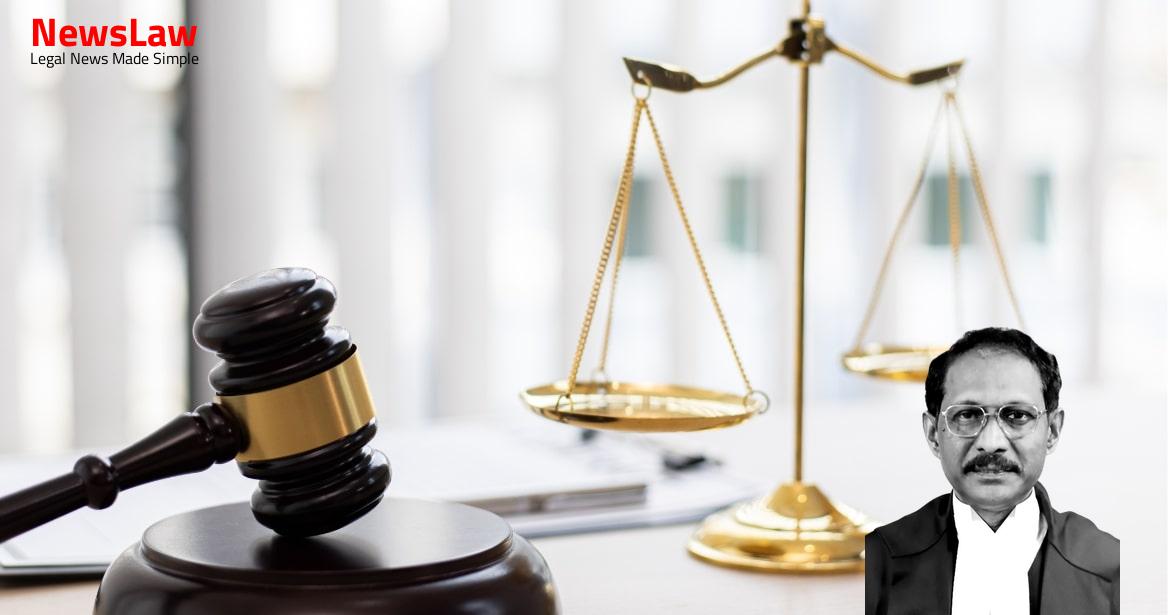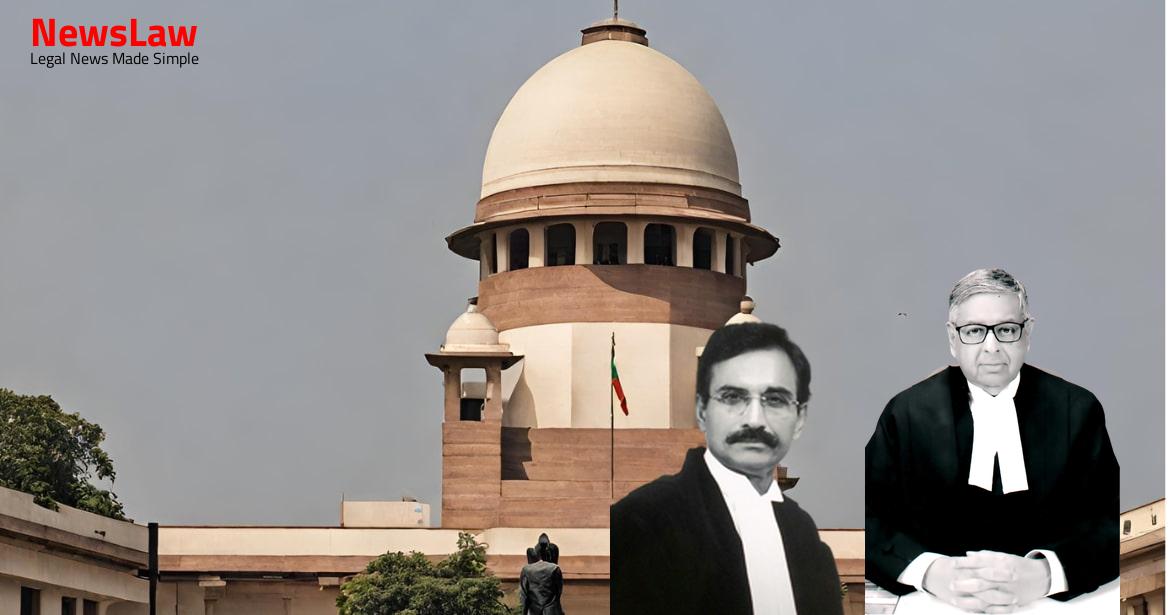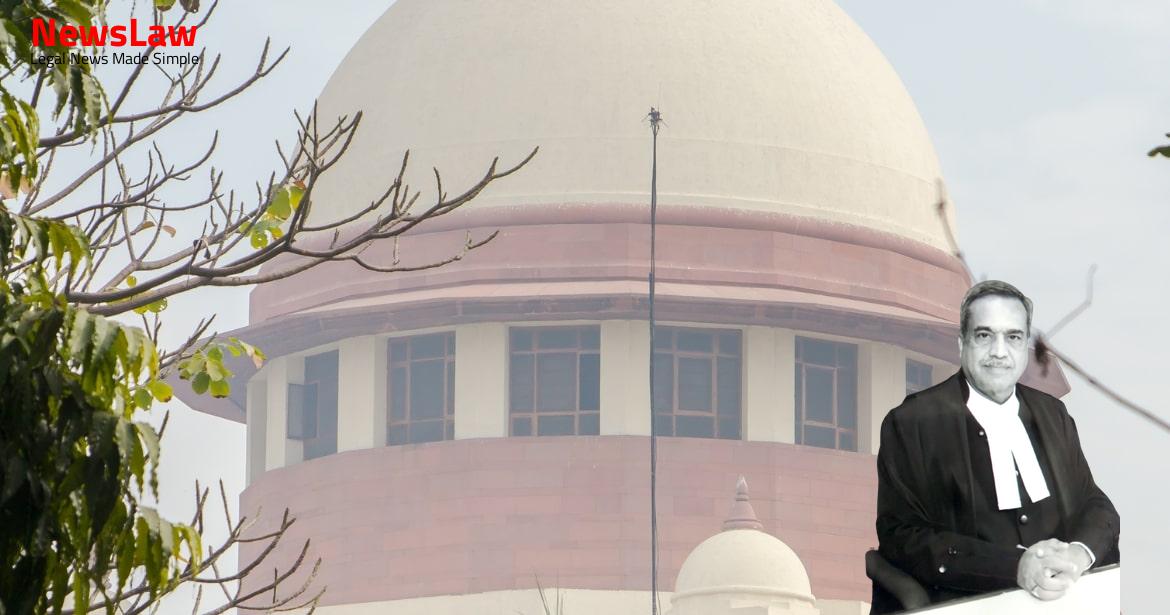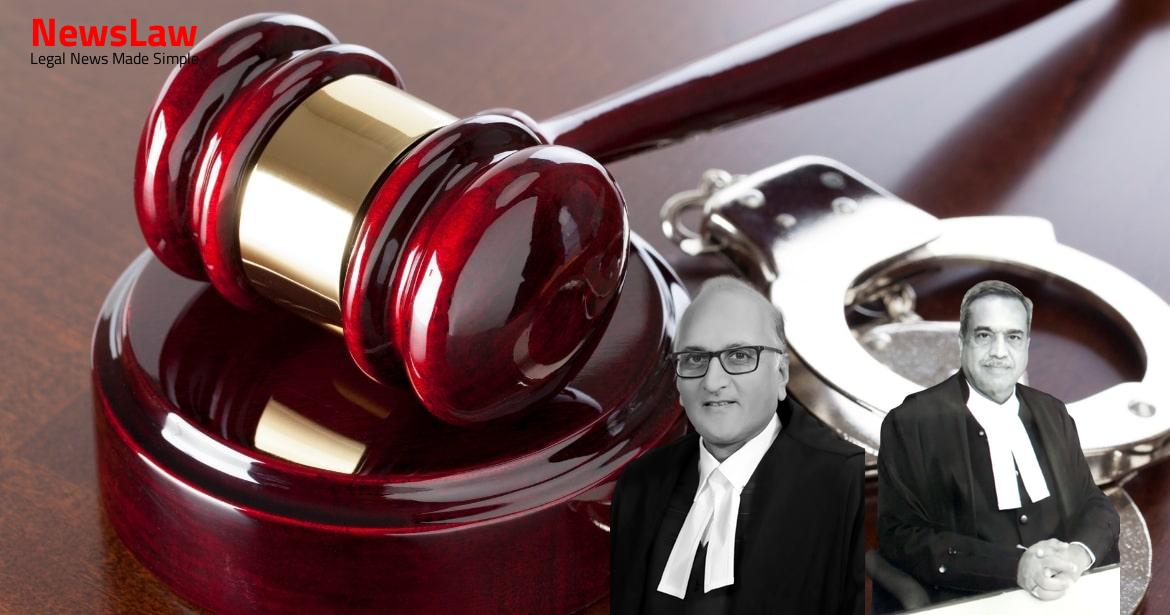The court’s in-depth legal analysis in a recent exchange fluctuation case unravels the complexities of distinguishing revenue from capital expenditure. By examining precedent cases and relevant laws, the court provides valuable insights into the intricate aspects of tax implications. Stay tuned to explore the nuances of this critical judgment and its implications for future cases.
Facts
- Appellant submitted returns of income for the assessment year 1997-1998 with mention of loss due to exchange fluctuation.
- Assessment completed on 16.3.2000 showed positive taxable income instead of the loss declared by the appellant.
- Matter appealed before Commissioner of Income Tax (Appeals) and Income Tax Appellate Tribunal.
- Appellant claimed deduction for loss due to exchange fluctuation and presented a fresh claim for revenue expenses of Rs.2,46,04,418/- erroneously capitalised.
- ITAT allowed the fresh claim based on no objection from the department’s representative and referred to a previous decision for support.
- Entertaining fresh claim under Section 254 of the 1961 Act.
- The ITAT reversed the finding of CIT(A) on the application of Section 43A of the 1961 Act.
- ITAT considered whether the loss due to exchange fluctuation is revenue or capital expenditure.
- ITAT held that the loss is expenditure on revenue account and allowed as a deduction.
- The funds borrowed were used for the regular finance business of the assessee.
- ITAT stated that Section 43A had no relevance to the current case.
Also Read: Court’s Jurisdiction in Re-appraising Arbitrator’s Findings
Issue
- Whether the Tribunal is justified in deleting the dis-allowance of claim for exchange fluctuation made by the Assessing Officer for the assessment year 1997-98.
- Whether the Tribunal is justified in allowing the additional claim and treating the capitalisation of the sum as revenue expenses for the assessment year 1997-98.
Also Read: Contrary Directions in Issuance of Letter of Intent
Analysis
- ITAT and the conclusion arrived at in respect of the subject claim of the appellant being the correct approach consistent with the exposition of this Court.
- The objection now taken by the department cannot be countenanced due to earlier acceptance and no objection given by the department.
- The ITAT has plenary powers under Section 254 of the Act to entertain fresh claims even if inconsistent with original plea.
- Loan between the appellant and Commonwealth Development Corporation was necessary for carrying on its business of financing, hence expenditure is allowable.
- The nature of advantage in a commercial sense determines whether expenditure is on revenue or capital account.
- The High Court missed relevant aspects of the ITAT analysis concerning the fact situation of the present case.
- The ITAT was conscious that the claim was set up for the first time by the appellant and was inconsistent with the original stand, yet it was permitted based on Supreme Court precedent.
- The ITAT reversed the High Court’s decision on the claim of Rs. 3,56,57,727
- The ITAT based its decision on precedents like CIT vs Chowgule Co Ltd and Empire Jute Co. Ltd
- The ITAT emphasized that the enduring benefit test is not conclusive and enduring benefit does not convert liability to contingent liability
- The ITAT also highlighted that any advantage acquired by an assessee to facilitate trading operations or increase efficiency is considered on revenue account
- The ITAT referred to the Calcutta Co Ltd. vs CIT and Bharat Earth Movers Ltd. vs. CIT cases, where future liabilities were not considered contingent
- The ITAT allowed the entire claim of Rs. 3,56,57,727/-
- The High Court’s decision was reversed mainly due to lack of recorded reasons by the ITAT and a conclusion without basis
- The ITAT was correct in accepting the claim of the appellant
- The decision was based on the precedent set in the case of India Cements Ltd. vs Commissioner of Income Tax, Madras
- The appellant did not acquire any asset from a foreign country for their business.
- The discussion and interpretation in this case do not apply to the current situation.
- The decision in the case of Assistant Commissioner of Income Tax, Vadodara vs Elecon Engineering Company Limited was also cited by the department’s counsel.
Also Read: Application for Stay in Civil Suit Rejected: Court’s Legal Analysis
Decision
- The appeal has been allowed with no order as to costs.
- The impugned judgment and order of the High Court are set aside.
- The decision of the ITAT dated 3.6.2004 in favor of the appellant on the two questions examined by the High Court is affirmed and restored.
- The appellant’s claim of Rs.3,56,57,727/- as revenue expenditure is allowed in full.
- Consequential benefits such as depreciation availed by the appellant in relation to the stated amount towards exchange fluctuation related to leased assets capitalized (Rs.2,46,04,418/-) are treated as unavailable and non-est in the final assessment order.
- Suitable amendments are to be made in the final assessment order passed by the assessing officer for the concerned assessment year.
Case Title: WIPRO FINANCE LTD. Vs. THE COMMISSIONER OF INCOME TAX, BANGALORE (2022 INSC 417)
Case Number: C.A. No.-006677-006677 / 2008



